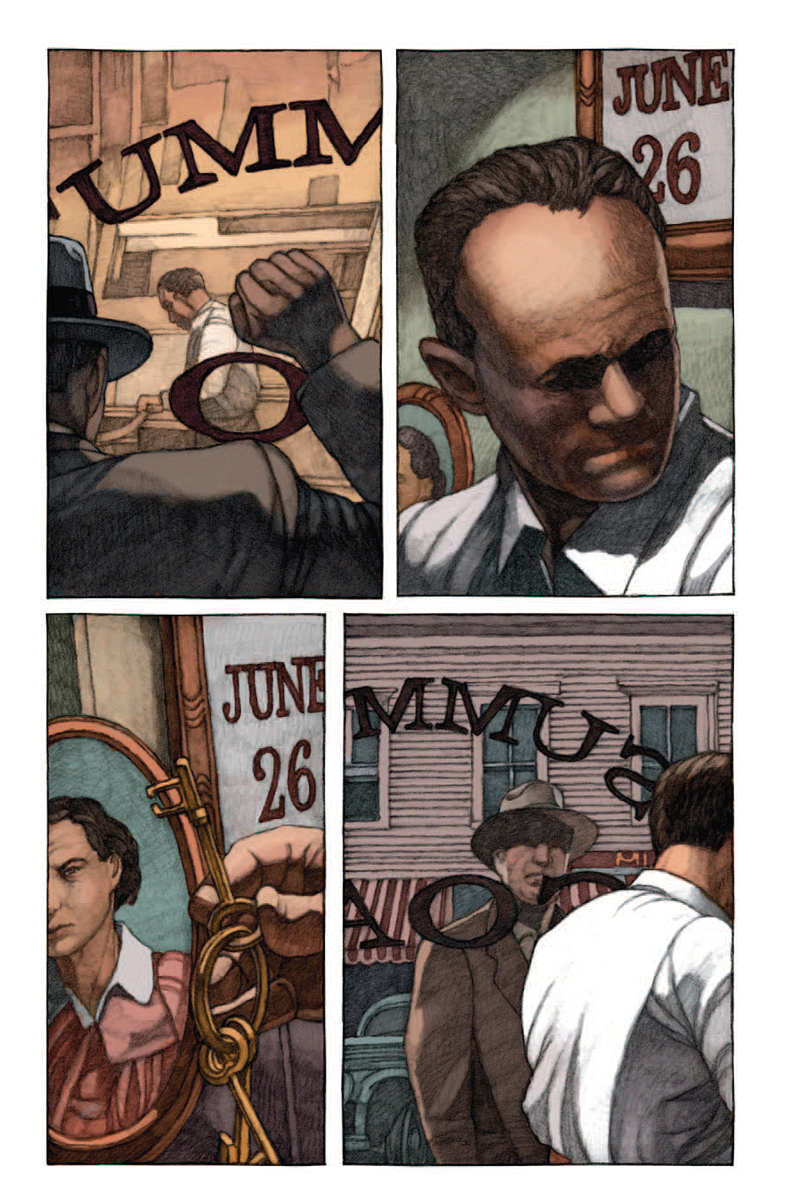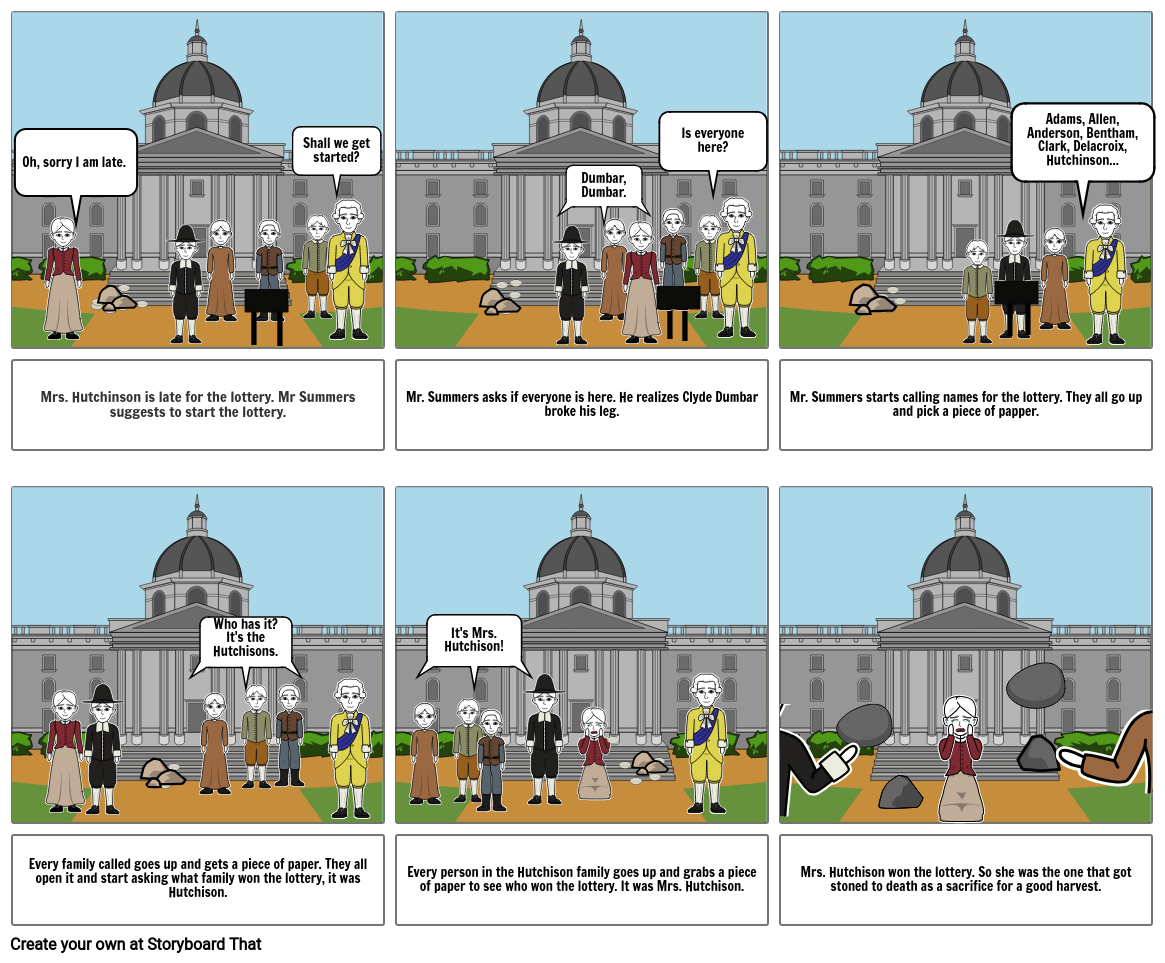
While the summer is supposed to be jovial, something grave and dark can ruin it.

Jackson deliberately chooses the last names of the characters to reflect the irony of the event. Summers set the black box down on it” (Jackson 1). Graves, follow him, carrying a three-legged stool, and the stool is placed in the center of the square, and Mr. Graves comes in closely behind: “The postmaster, Mr. Summers makes his first entrance with the black box, Mr. Graves to remind the reader that not everything is as light and good as it may seem. Summers is almost always closely followed by the name Mr. The characters’ names also show a contrast between darkness and light, for the name Mr. Often, the setting reflects the content of a story, but this is not true here. The setting of summer implies a sense of hope and happiness because the day “as clear and sunny with the fresh warmth of a full-summer day the flowers were blossoming profusely and the grass was richly green” (Jackson 1).


“The Lottery” begins with a description of the beautiful summer day, which makes the reader assume that a joyful event will take place. Shirley Jackson’s short story “The Lottery,” uses juxtaposition to show the town’s darkness through the beautiful summer day, the contrast of character’s names, and the difference in behavior between the adults and the children.


 0 kommentar(er)
0 kommentar(er)
